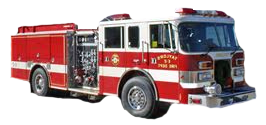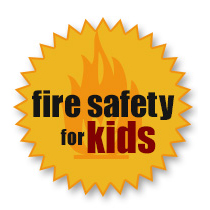Fire Safety – Generator Safety
PREVENTION TIPS:
- Generators should be operated in well ventilated locations outdoors away from all doors, windows and vent openings.
- Never use a generator in an attached garage, even with the door open.
- Place generators so that exhaust fumes can’t enter the home through windows, doors or other openings in the building.
- Make sure to install carbon monoxide (CO) alarms in your home. Follow manufacturer’s instructions for correct placement and mounting height.
- Turn off generators and let them cool down before refueling. Never refuel a generator while it is running.
- Store fuel for the generator in a container that is intended for the purpose and is correctly labeled as such. Store the containers outside of living areas.
KNOW THE SYMPTOMS OF CO POISONING
Source: Consumer Product Safety Commission
Because CO is odorless, colorless, and otherwise undetectable to the human senses, people may not know that they are being exposed. The initial symptoms of low to moderate CO poisoning are similar to the flu (but without the fever). They include:
- Headache
- Fatigue
- Shortness of breath
- Nausea
- Dizziness
High level CO poisoning results in progressively more severe symptoms, including:
- Mental confusion
- Vomiting
- Loss of muscular coordination
- Loss of consciousness
- Ultimately death
CO ALARMS:
- Install and maintain CO alarms inside your home to provide early warning of carbon monoxide.
- CO alarms should be installed in a central location outside each separate sleeping area and on every level of the home.
- Choose a CO alarm that has the label of a recognized testing laboratory.
- CO alarms are not substitutes for smoke alarms. Know the difference between the sound of smoke alarms and the sound of CO alarms.
Printable Generator Safety PDF
Printable Portable Generators and Winter Storms PDF




